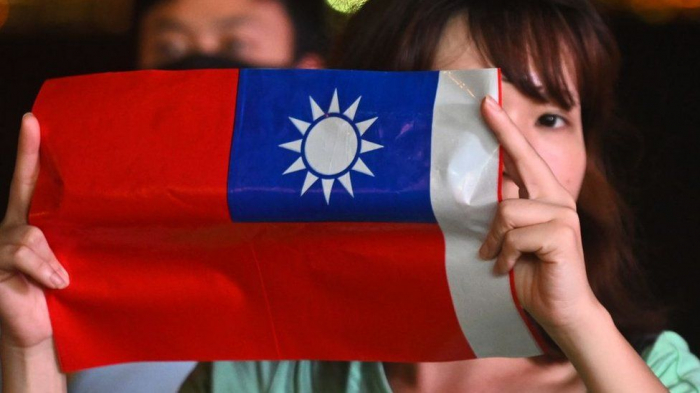China has in a strong statement warned that attempts by Taiwan to seek independence from Beijing "means war".
The warning comes days after Beijing stepped up military activities and sent warplanes near the island.
It also comes amid closer ties between Taiwan and the US, which welcomed a new administration just last week.
In a statement on Thursday, the US reaffirmed Washington's commitment to supporting Taiwan's defence capability.
China sees democratic Taiwan as a breakaway province, but Taiwan sees itself as a sovereign state.
"We are seriously telling those Taiwan independence forces: those who play with fire will burn themselves, and Taiwan independence means war," Chinese defence ministry spokesman Wu Qian said at a press conference on Thursday.
He also defended China's recent military activities saying they were "necessary actions to address the current security situation in the Taiwan Strait and to safeguard national sovereignty and security".
The US responded later on Thursday. "We find that comment unfortunate and certainly not commensurate with our intentions to meet our obligations under the Taiwan Relations Act," Pentagon press secretary John Kirby told reporters, in the first statement by the new administration on China-Taiwan relations.
Mr Kirby added that the Pentagon "sees no reason why tensions over Taiwan need to lead to anything like confrontation".
The new US administration is expected to maintain pressure on China over a wide range of issues including human rights, trade disputes, Hong Kong and Taiwan, amid the deteriorating relationship between the two powers.
China's official spokespeople try not to talk about war. They almost always emphasise that theirs is a peace-loving country.
China is not a nation with a history of expeditionary military confrontation far beyond what it regards as its borders - except when it comes to Taiwan. Modern day Taiwan is a result of a civil war.
Under Xi Jinping's leadership, China has repeatedly said that it would use military force to prevent any move towards formal independence by what it regards as a renegade province.
Threatening a war isn't as nuanced as talk of military intervention. It's blunt, more frightening. It is different too. Military intervention could come in a multitude of ways; not necessarily an out-and-out war between two competing sides and their allies.
But Taiwan's status is a red line for Beijing, a part of what it regards as its unimpeachable territorial integrity. An "internal affair", alongside Hong Kong.
The language deployed by the government spokespeople may not always be this provocative but when it comes to Taiwan it's fair to assume this is what China is, ultimately, willing to resort too.
China and Taiwan have had separate governments since the end of the Chinese civil war in 1949. Beijing has long tried to limit Taiwan's international activities and both have vied for influence in the Pacific region.
Tensions have increased in recent years and Beijing has not ruled out the use of force to take the island back.
Although Taiwan is officially recognised by only a handful of nations, its democratically elected government has strong commercial and informal links with many countries.
Like most nations, the US has no official diplomatic ties with Taipei. But its Taiwan Relations Act promises that the US will supply Taiwan with defensive weapons, and stresses that any attack on Taiwan would be considered a matter of "grave concern" to the US.
In January 2020 Taiwan's president Tsai Ing-wen told the BBC that China needed to respect the will of Taiwanese people.
More about:
















































